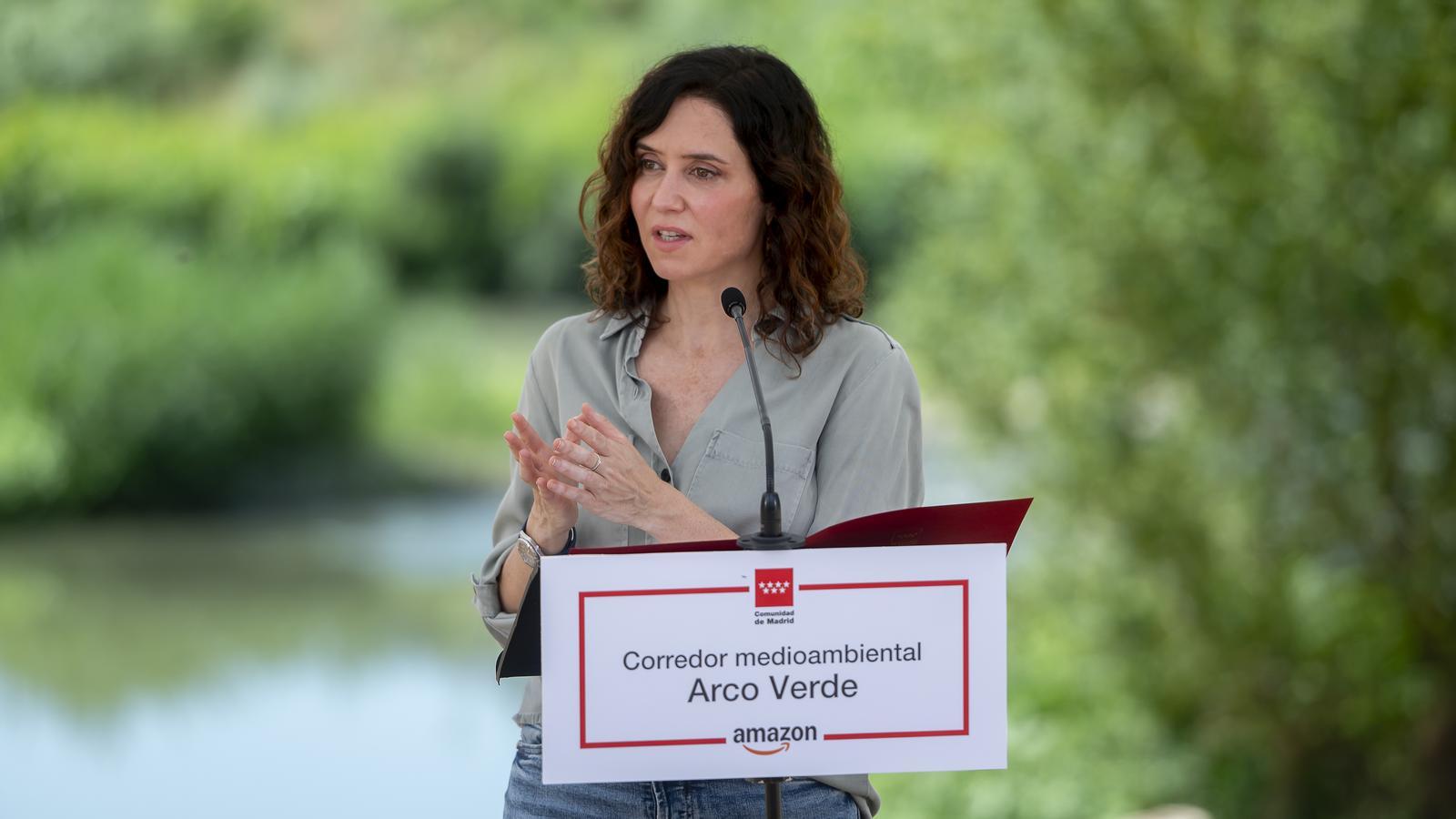Ayuso responds to Isla's criticism of Madrid's lack of solidarity: "We contribute 70% of the joint fund."
Ester Muñoz (PP) also echoes the words of the president of the Generalitat in the ARA interview: "The problem is his poor management."

Madrid / BarcelonaSalvador Illa's criticism of "unfair competition and tax dumping in Madrid" in an interview in the ARA This has not pleased the PP nor the president of Madrid, Isabel Díaz Ayuso. The president of the Generalitat attacked the "model of unsupportive accumulation" of wealth in the Community of Madrid, in reference to the tax cuts for those who have the most, which he contrasts with the "shared prosperity" that his government defends for Catalonia. This Sunday Ayuso replied to what, in her opinion, is the "reality" about the contribution of her autonomy to inter-territorial solidarity: "The Community of Madrid contributes 80% of its revenue; 70%, in the common fund," she argued to X.
a black hole that absorbs the activity of the surrounding territories by competing with low taxes. Furthermore, she demanded that the new financing system take into account this element of "capital status" and that it establish a fiscal floor for regional governments to prevent them from "requiring more resources with one hand" and lowering taxes for the wealthiest with the other, as also happened in Andalusia. Ayuso also responds to these criticisms, asserting that she has only reduced the "regional margin" of taxes (for example, by eliminating inheritance or wealth taxes). Meanwhile, she says, the Generalitat (Catalan government) "fries Catalans for its businesses at the expense of all Spaniards." The PSC government has defended maintaining the same level of taxation in Catalonia in order to fund public policies, such as healthcare, education, and research.
Both the Community of Madrid and Catalonia are among those most affected by the current system of regional financing.Madrid is the region that contributes the most and the eleventh in terms of resources per capita; Catalonia is the third in terms of contributions and the tenth in terms of receipts. Applying the principle of ordinality in distribution—as advocated by the PSC and ERC governments for the new model—would benefit both, as it would mean they would not lose ground between what they contribute and what they receive.
A "joke"
Salvador Illa's words also received a response from the new PP spokesperson in Congress, Ester Muñoz, who considered the fact that the socialist leader "talks about unfair competition" to be a "joke." "What he wants is privileged financing, its own tax agency, and to break up the common fund," she said via X. This criticism is not new. The PP is strongly opposed to new financing for Catalonia, and some of the autonomous communities it governs have already announced that, when it is finalized, they will go to court to prevent what they consider an attack on equality and solidarity among Spaniards.
The one who put her spoon in the crossfire was the PSOE spokesperson and PSC deputy, Montse Mínguez: taking advantage of the fact that Muñoz replied to some statements by Isla in Catalan, she pointed out, in a message to X, that "it is not that difficult to maintain a bilingual conversation." "Tell Ayuso the trick for next time, let's see if she doesn't get up or leave," she said. She was referring to the boycott of the co-official languages of the Madrid president at the Conference of Presidents in Barcelona, from which he was absent when Catalan and Basque were spoken.
The rest of the PP regions, far from complaining about what the Socialists denounce as Madrid's "fiscal dumping," have joined these tax cut policies and have replicated some in their own territories—with the disadvantage of not having the capital status effect—and in Génova they are using the same argument. "Not even with all the gold in the world would public services in Catalonia improve because the problem isn't funding, it's its poor management," Muñoz asserted in his message this Sunday. In the crusade against singular financing, the PP in Andalusia even reached out to the Socialist Castilla-La Mancha and Andalusia to create a common "alliance" against the reform. This Sunday, the Andalusian Minister for the Presidency, Antonio Sanz, reiterated this point in an interview with Europa Press, urging the "harmed" autonomous regions to put aside their "partisan" t-shirts and put on "the Spanish one."
